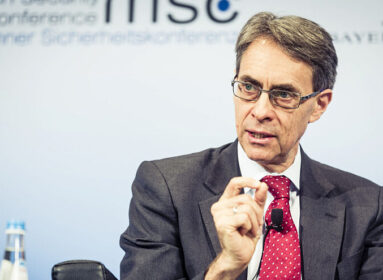By Cindy Mindell
NEW HAVEN – After more than 10 years in the director’s chair of the Greater New Haven Jewish Community Relations Council (JCRC), Lauri Lowell is retiring to devote her energies to a new writing and editing effort. She will be replaced by Rabbi Joshua Ratner, the first rabbi to hold the position.
A New York City native, Lowell has been a political activist since 1964 when, as a 10-year-old, she carried a copy of the SNCC (Student Nonviolent Coordinating Committee) calendar as her personal datebook. The following year, she and a group of friends from middle school marched in the Fifth Avenue Peace Parade as the self-styled SCAW, Students Crusade Against War, and were the targets of eggs and tomatoes thrown by onlookers.
Lowell would go on to Clark University to earn a BA in history, political science, Judaic studies, and theater, and then to Rutgers University School of Law. In the late ‘70s, she worked as editor of Nonviolent Activist (now WIN), a small magazine published in Brooklyn by the War Resisters League. In 1986, she earned a Master of Social Work from New York University and worked as a clinical psychotherapist.
Living in Hamden with her husband, Isaiah Cooper, Lowell took a break from professional life to raise a family. In the early 2000s, as her youngest child was preparing for kindergarten, Lowell started looking for a position in the Jewish community. The timing would prove fortuitous: the Jewish Federation of Greater New Haven had decided to revive its JCRC after a decade of dormancy, under the leadership of Milton Wallack.
“Things were relatively quiet in Israel and the local Jewish community had been focusing on other issues,” Lowell says. “But the second intifada, in 2000, led to the chickens coming home to roost: in 2002, New Haven’s annual International Festival of Arts and Ideas staged Stories Under Occupation by the Ramallah-based Al Kasaba Theatre, and our Jewish community felt that they were not able to respond in a concerted way. There were excellent responses by various individuals and by the Federation, but there was a sense that we should recreate our JCRC and have it be prepared not just to respond, but to proactively respond to how Israel is seen and presented in the greater community.”
Lowell grew up in a family committed to the Jewish community; her father was in the leadership of the JCRC in New York and nationally with the Jewish Council for Public Affairs (JCPA), the national public-affairs arm of the organized Jewish community; he also served on the UJA-Federation of New York board.
During Lowell’s tenure, the JCRC worked locally on immigration reform issues like the Elm City Resident Card and the 2007 U.S. Immigration and Customs Enforcement (ICE) raid in East Haven, bringing New Haven’s point of view to the national Jewish Council for Public Affairs.
“Because our JCRC was responding to the needs of our local community, we took a majority position to JCPA, incorporating principles of reform which were incorporated into the existing JCPA thinking on immigration, with input on the refugee issue by Hadassah and American Jewish Committee,” says Lowell. “We ended up with a very strong resolution in March 2007, just in time to respond to the ICE raids in New Haven by writing letters to the editor and to the Department of Homeland Security in support of human rights for those immigrants taken out of their homes. I think our JCRC has always taken the national issues very seriously.”
While JCRC, as part of the local Interfaith Cooperative Ministries and other communal alliances, engages in issues that affect the community at large, a major part of its mission is Israel advocacy-related. JCRC members regularly monitor activities supporting the boycotts, divestment, and sanctions movement against Israel (BDS). In February, Lowell and fellow committee members attended a meeting hosted by Yale Students for Justice in Palestine, who called for Yale faculty to sign an open letter asking TIAA-CREF to divest from those companies that “profit from the occupation of Palestinian land.”
A month later, Miko Peled spoke at Bethesda Lutheran Church in New Haven, sponsored by Jewish Voices for Peace and Tree of Life. Peled is author of The General’s Son: Journey of an Israeli in Palestine. He speaks out against what he sees as an apartheid Israeli occupation over the Palestinians and advocates for a single democratic state with equal rights for Israelis and Palestinians. The Tree of Life Educational Fund was established by the First Congregational Church of Old Lyme to advocate for Palestinian rights.
“We need to know what their positions are and, if they change in some way, it’s important to track what’s going on, to keep an open dialog with church leadership,” Lowell says. “I found the Peled event very upsetting because you couldn’t refute the information put forth: the facts weren’t problematic, but they were presented as if they were proof that Israel is immoral and unethical, with no context or history or background or understanding as to how things came to be the way they are.”
With its two-prong mission, JCRC is sometimes criticized for diluting its focus in interfaith and general social justice efforts. “There are people who would say, ‘You have such limited resources in the Jewish community, why are you spending time on other issues?’” Lowell says. “When another group – ethnic or religious – is in trouble or has been bullied or has experienced bias, we come forward and stand with them so that they don’t stand alone. So the answer I give is that when we stand up for others, we can ask them to stand up for us when we need them. Hopefully, they’ll remember and if they don’t, we remind them.”
“New Haven is a small community with a big mouth because our JCRC committee is comprised of people who really take the time to study and think about the issues,” Lowell says. “We always took a position on the JCPA resolutions and gave our input to the national body and spoke on our positions, so it was a lively interchange. I felt that we had done some very good things while I was there, with much left to be done, but the organization is in very good hands and it was time to pass it on to somebody else while there are some positive things underway.”
Lowell has taken an especially enjoyable aspect of her professional life – writing – and launched Lowell Writing & Editing.
Now the baton is passed to Rabbi Joshua Ratner, the first rabbi-attorney to hold the position. A Woodbridge resident, Ratner is also starting his second year as spiritual leader of Congregation Kol Ami in Cheshire.
“The JCRC’s work is something I’ve always been interested in because it offers so many wonderful overlaps of my real passions,” Ratner says: “being an advocate of the social services and public assistance needs of the Jewish community, which is especially crucial in an era of budget cuts and an uncertain future of entitlement programs; and being a bridge-builder or interpreter to the community at large about why Jews care about public policy issues like the environment, and human rights for all – the issues that speak to the Jewish soul, and the values we’ve always engaged in and cared about in a modern context.”
Growing up in San Diego, Ratner was exposed to the work of JCRC through his parents’ involvement with the local Jewish Federation. While a student at Jewish Theological Seminary, he was a rabbinical fellow at JCPA, where he developed a greater understanding of how JCRCs connect and cooperate on national advocacy and policy efforts.
“Some of the leading organizers in the Save Darfur Coalition were Jewish individuals and groups,” Ratner says. “Even though there are no Jews in Sudan, the idea of being an advocate against any genocide because of the Holocaust and our history of persecution gives us the opportunity and obligation to engage in this issue and gives us a unique voice.”
In its Israel advocacy work, Ratner sees JCRC not only focusing on the threats that persist against the country. “I think it’s useful not just to have our conversation about Israel center around Israel and its enemies, but also on other aspects of Israeli life and culture that we miss because they’re not in the headlines,” he says. “I’m hoping to bring in panel discussions about Israel and its amazing efforts in technology, as well as discussions on religious pluralism and what the American Jewish community might do to advocate for greater pluralism.”
Ratner also plans to continue Lowell’s work on issues like immigration reform. “I hope to continue to keep this issue at the top of the JCRC agenda,” he says, “working to do what we can locally in the national immigration effort but also making sure that we address the needs of New Haven area immigrants so that they can thrive in the U.S.”
Ratner also wants to do more locally about environmental issues. “When we talk about climate change and global warming, people think of it in grand national and global contexts, which matter, but it also matters locally that we make a concrete and tangible difference,” he says. “I want to help people understand that what we do locally will have an impact, to give people information and tools to raise awareness and to make it relatively easy for synagogues and other religious institutions and organizations to implement changes. I want to take the issue from the abstract to the practical, to show how it can benefit the community economically and morally to make the changes – whether they’re ‘low-hanging fruit’ changes like switching out light bulbs, or more substantial like installing solar panels.”
Ratner sees JCRC as a valuable liaison body that can provide resources on a communal level to all area synagogues, and work with rabbis on specific social-justice needs. “With so many synagogues here and with limited budgets and volunteers, there are synergies that we can help organize and programs that we can help construct to benefit many,” he says.
“Rabbi Ratner is a young man with tremendous ability and dedication to his rabbinate at Kol Ami in Cheshire and to social justice. We are certain that he will provide guidance and vision as the JCRC devotes itself to the great moral and political problems of our time,” says Sydney A. Perry, CEO of the Jewish Federation of Greater New Haven. “With Lauri Lowell’s retirement after 10 years of service, our search for a replacement led quite naturally to Rabbi Ratner. A lawyer, an articulate spokesperson for issues connected to environmental sustainability, poverty, and food insufficiency, and an advocate for peace in Israel, Rabbi Ratner will build on the foundation which Lauri laid over the past decade. He will move the JCRC forward with the interfaith community as the Federation’s public and policy communal expression of tikkun olam. The entire JCRC Board and his rabbinic colleagues look forward to his leadership.”
Comments? email cindym@jewishledger.com.







 Southern New England Jewish Ledger
Southern New England Jewish Ledger
















